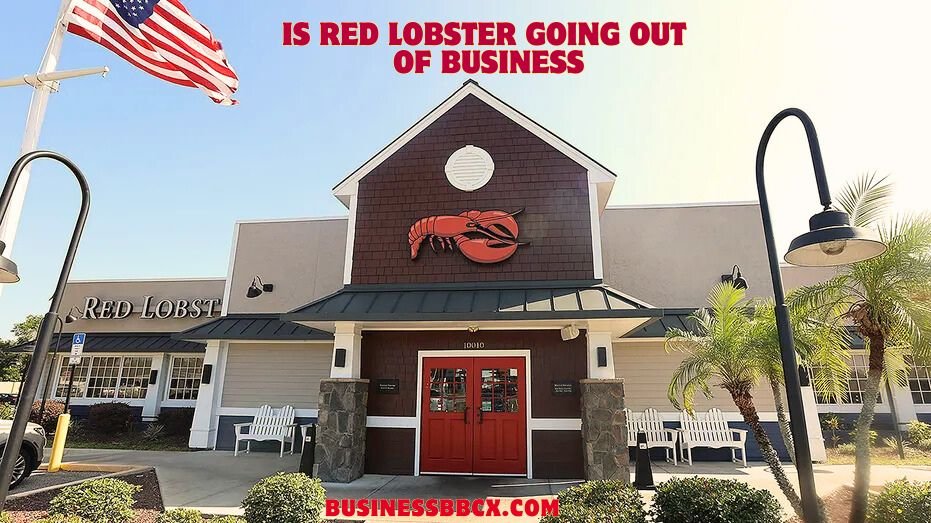Is Red Lobster going out of business? This question has sparked intense discussions among seafood lovers and restaurant enthusiasts alike. For decades, Red Lobster has been a staple of casual dining, offering delicious seafood meals and an inviting atmosphere. But recent news surrounding its financial struggles has left many wondering: Is this the end of an iconic brand, or is there hope for reinvention?
Table of Contents
ToggleA Legacy of Flavor and Tradition

Red Lobster has been synonymous with quality seafood dining since its inception in 1968. Founded in Lakeland, Florida, the restaurant quickly grew into one of America’s most beloved casual dining establishments. Over the years, Red Lobster became a go-to spot for families, celebrations, and anyone craving a taste of the sea.
However, in recent years, the dining landscape has changed drastically. While Red Lobster remains a recognizable brand, it’s been struggling to maintain its footing in a fiercely competitive market. The question on everyone’s mind now is: Is Red Lobster going out of business?
Factors Behind the Financial Struggles

There are several reasons why Red Lobster has found itself in troubled waters:
Shifting Consumer Preferences: In today’s fast-paced world, many diners prefer quick-service restaurants or delivery options. Red Lobster’s sit-down dining experience doesn’t align with the convenience-driven habits of modern consumers.
Economic Pressures: Rising costs of seafood, labor, and operations have significantly impacted profitability. As a seafood-focused chain, Red Lobster’s menu prices are higher than average, making it less appealing during economic downturns.
Competitive Market: The casual dining sector has seen increased competition from newer, trendier brands. Red Lobster’s traditional approach struggles to compete with innovative menus and unique dining concepts.
Pandemic Aftershocks: Like many in the restaurant industry, Red Lobster suffered massive revenue losses during the COVID-19 pandemic. While some brands bounced back, others, including Red Lobster, have faced prolonged recovery challenges.
Debunking the Rumors
Despite the challenges, Red Lobster is not entirely sinking. The rumors about Red Lobster going out of business stem from its financial difficulties, but the company is actively working to stay afloat. Recent initiatives include menu revamps, digital ordering enhancements, and limited-time promotions to attract new customers.
In an official statement, Red Lobster’s management assured patrons that the brand is not shutting down entirely but rather undergoing restructuring to adapt to current market trends. They have emphasized their commitment to preserving the legacy of the restaurant while modernizing its operations.
The Emotional Connection
For many, Red Lobster is more than just a restaurant; it’s a place filled with memories. Whether it’s family gatherings, date nights, or special celebrations, the thought of losing Red Lobster strikes a sentimental chord. Its iconic dishes, like the Ultimate Feast and endless shrimp promotions, have cemented their place in culinary history.
This emotional connection is both a strength and a challenge for the brand. While loyal customers rally to support it, nostalgia alone may not be enough to sustain the business long-term.
What’s Next for Red Lobster?
To navigate these turbulent times, Red Lobster needs to focus on several strategic areas:
Menu Innovation: Adding contemporary dishes and healthier options can help attract a younger demographic. Collaborating with chefs to create limited-time offerings could also generate buzz.
Enhanced Customer Experience: Investing in technology, such as online ordering and app-based loyalty programs, can improve convenience and customer engagement.
Sustainability Efforts: With increasing awareness about environmental issues, adopting sustainable seafood sourcing practices and reducing waste can resonate with eco-conscious diners.
Marketing Revamp: Launching targeted campaigns that highlight the brand’s unique offerings can draw attention. Social media collaborations and influencer partnerships could help Red Lobster stay relevant.
The Positive Impact of Staying Resilient

While the challenges are undeniable, there’s a silver lining. The adversity has pushed Red Lobster to innovate and adapt. This resilience could potentially lead to a stronger, more modern brand that continues to serve generations of seafood lovers.
For loyal fans, the potential closure of Red Lobster would feel like losing a part of their culinary identity. However, by focusing on growth and change, the brand has a chance to rewrite its narrative and reclaim its position in the industry.
How Customers Can Help
Fans of Red Lobster can play a role in supporting the brand. Dining at their local Red Lobster, spreading the word about its offerings, and engaging with the brand on social media are small but impactful ways to show support.
Additionally, providing feedback on menu preferences and dining experiences can help Red Lobster understand what its customers value most. After all, customer loyalty and satisfaction are critical components of any restaurant’s success.
In Conclusion
The rumors of Red Lobster going out of business serve as a wake-up call for both the brand and its supporters. While the restaurant faces significant challenges, it’s not too late for a turnaround. By addressing market demands and embracing innovation, Red Lobster can rise above the tide.
For now, seafood enthusiasts can continue to enjoy their favorite dishes and support the chain as it navigates this uncertain phase. After all, the story of Red Lobster is far from over, and its next chapter could very well be its most exciting one yet.


